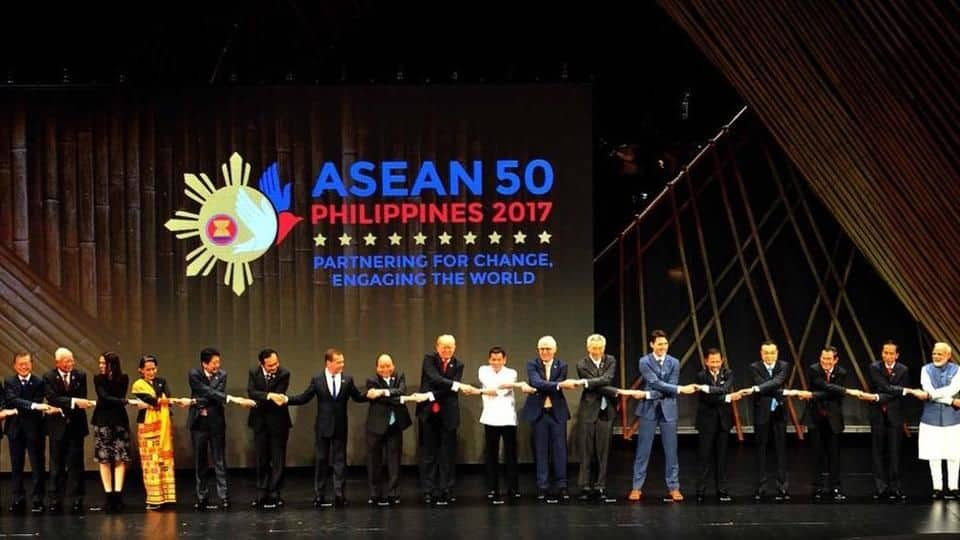
Is India leaning toward ASEAN to counter China's OBOR?
What's the story
India is gearing up to host the ASEAN-India connectivity summit this week. Unsurprisingly, India will be partnering with Japan, which has started to occupy a central place in India's Act East Policy. India and Japan view the summit as important as they intend on pitting it as a counter-balance to China's One-Belt One-Road (OBOR), which they view with suspicion. Here's more about it.
About
ASEAN-India Connectivity Summit
The summit will be held between December 11-12 and will see participation from 10 ASEAN member countries (Indonesia, Malaysia, Philippines, Singapore, Thailand, Brunei, Myanmar, Cambodia, Vietnam, and Laos) and Japan. It aims to bolster economic and cultural ties between India and ASEAN countries with a large role envisioned for seven of India's north-eastern states (Assam, Meghalaya, Manipur, Mizoram, Sikkim, Tripura and Arunachal Pradesh).
Why?
Why is India prioritizing ASEAN?
South-east Asia is currently a top-priority region for India's foreign policy. India views ASEAN as a viable means to expanding influence in China's own backyard, to counter Beijing's effort to strengthen military and economic ties with countries in India's neighborhood. Moreover, India has been trying to revive cultural and economic ties with ASEAN countries dating back to ancient times through mutually beneficial arrangements.
Information
India-ASEAN partnership: A primer
Both sides recently completed 25 years of dialogue partnership and five years of strategic partnership. In 2015, India extended $1bn line-of-credit to improve digital and physical connectivity with ASEAN. It has also invited all 10 ASEAN heads-of-states to attend the Republic Day function in 2018.
Japan's interests
Where does Japan fit in?
Japan and India have become close friends under PMs Shinzo Abe and Narendra Modi respectively. Tokyo will be represented at the summit by the Japan International Cooperation Agency and the Japan External Trade Organization. Japan looks to capitalize from the summit and establish stronger links with India's north-eastern states.
Analysis
Are India, Japan trying to counter China's OBOR?
India and Japan are interested in keeping Chinese influence in check. In case of India, China has been wooing its South Asian neighbors with investments under OBOR. Recently, India's neighbors, including Pakistan, Nepal have been pulled out of key projects citing exploitative debt-financing practices. India and Japan could be sensing an opportunity to capitalize on South Asian countries' disgruntlement with China, hence countering OBOR.